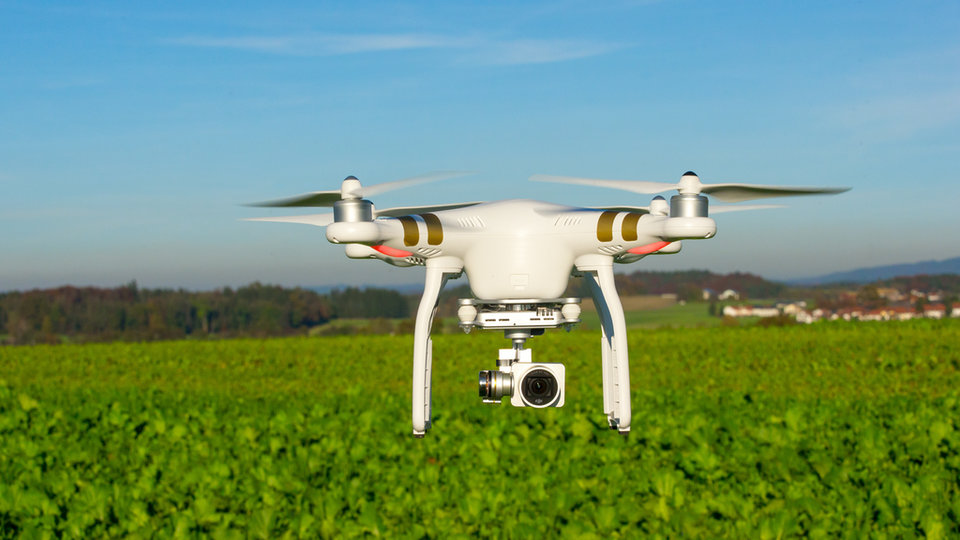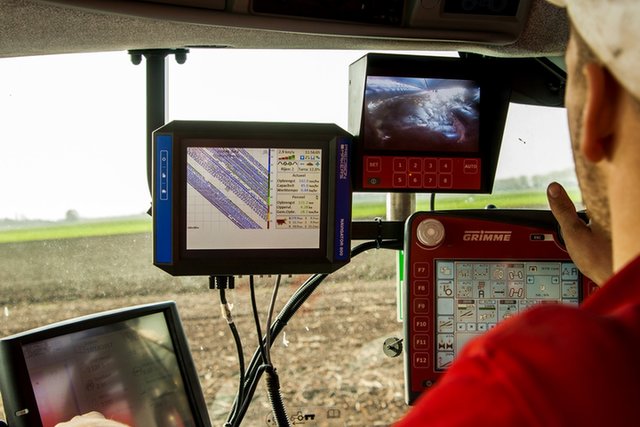Interview
Interview with Alexander Berlin
The importance of business development in the elaboration of IoT solutions in the agrifood sector

What are the main business development challenges for the elaboration of IoT solutions in the agrifood sector?
Bringing farmer and solution developer together in a mutually beneficial manner. A farmer simply does not have enough time in a busy all-day work schedule to search and analyse the many digital solutions available on the market. This is one of the key barriers for the large-scale adoption of digital solutions by farmers. Thousands of solutions are competing for the farmers attention, often offering limited information about their actual proven performance or impact on a real farm. At the same time, through IoF2020 we observed that the developers of digital solutions face the time-consuming challenges of finding the right farms for validation and testing, winning the farmers’ trust to exchange data, receive professional feedback on usability and features and finally having a tangible demonstration case on farms in their target markets.
What has the IoF2020 business support team done in order to answer these challenges?
The business support team of IoF2020 developed the concept of the European Digital Test Farm Network. The idea is rather simple: we want to pool all interested test farms from IoF2020, corporate test farms, research test farms and the national test farm infrastructures into a European network that offers quick matchmaking, proprietary data exchange contracts, professional service validation and support by objective, external research experts for the measurement of valid KPIs. The aim for this network is to operate fully self-sustainable in its final stage, creating revenue via fees for the product development support and validation paid by the service providers. In return it saves the developing companies valuable time on the go-to-market process and ensures high quality in usability and proven impacts for the farmer.
A very interesting concept, but how exactly does this help the farmers?
Currently we are still validating the concept and we will run some first test validations in 2020. However, many companies are already supporting this initiative and IoF2020 works actively with partner projects like NEFERTITI, SmartAgriHubs and EIT Food on building the network and proving the business model behind it in the course of 2020. You can visit the website of the European Digital Test Farm Network for more information.
The true value of digitalization can only unfold if there is a simple but safe data exchange between the different players and their machinery in a value chain.

What is the role of data in the business development of agri-food IoT innovations?
The true value of digitalization can only unfold if there is a simple but safe data exchange between the different players and their machinery in a value chain. Imagine a world where farmers instantly learn about best farming techniques by digital exchange, where due to automated and high-precision farm machines farmers can grow larger varieties of food with the same management effort and less inputs as a mono-culture, where these tasteful products are marketed in virtual supermarkets that guide the customer to the products best fitting their preferences in terms of animal welfare, ecological footprint, nutrition, origin and price, where farmers plan their production based on preferences for their consumers, where farmers receive direct feedback from their consumers and can manage their relations directly, where farmers report for subsidies with one simple click in the farm management software, where farmers and consumers finally get closer to each other again and where farmers regain the appreciation for their products and work that they deserve. What a wonderful world this could be.
All these visions however rely on a complex data exchange across a still traditionally organized value chain. Many players have limited interest in the redistribution of bargaining power and in the transparency that data-sharing brings, or they simply see business opportunities in their valuable data for themselves and decide to hold their data back.
Is there any hope for improvement with regards to the exchange of data in the agrifood sector?
There is light at the end of the tunnel with data exchange initiatives for farm machine manufacturers like the DKE Agrirouter and the recently announced Data Connect of Claas, John Deere, Styr and CNHi. This shows that manufacturers open up their data for digital services. This is the result of a lot of pressure from farmers as well as of discussion groups within IoF2020. The business models however are still in development and we still see some competing approaches. Let’s see which one prevails.
This a good example for data exchange marketplaces that already work, but we need to establish more of them on the different levels of the value chain bringing machinery and process data together. However, a major barrier for the exchange of data between market actors like farmers and the processing industry is a lack of trust, a feeling of being put into a weaker negotiation position and fear that data will be uncontrollably shared with third-parties or used for other purposes then those the farmer gave consent for. Therefore, it is important to implement so-called “watchdogs” in modern marketplaces. These watchdogs are independent actors, like research institutes or multi-actor councils, that have the right to review source code of applications and monitor the data exchange process in order to identify potential misuse of data and prohibit it. So next to technical architectures of standards and predefined building blocks it requires a proper data governance approach that ensures the trust among players.
What role does the business support team of IoF2020 play in the journey towards a better data exchange system?
The business support as well as the technical team of IoF2020 actively supports the development of a European design for data exchange marketplaces by sharing insights and ideas at EC workshops, such as the one on Policies to Support Open Data Marketplaces on 29 Jan 2020.
Where do our 33 IoF2020 use cases stand, in terms of market readiness? And what is still needed for their solutions to go to market?
2020 is the go-to-market year for many of our 55+ solutions developed by our 33 IoF2020 use cases. Therefore, the business support team plans investment pitches for use cases to gain sufficient funding, as well as matchmaking with distributors in order to reach all target markets. Furthermore, the business support team provides the IoF2020 use cases with the KPI datasets of their products and services in order to use them in their marketing towards the farmer. Together with the communications team of IoF2020 we plan the production of professional product videos that showcase the features, usability and impact of each digital solutions launched from within the IoF2020 project.
Other than that, we will keep sharing our knowledge with the IoF2020 community and continue our very successful webinar series in 2020. In the last year we already reached 350+ people with our webinars, and we aim for even more this year. Stay tuned for our new topics and look up our old webinars on: https://www.iof2020.eu/latest/education.
In order to also support the uptake of new innovations, the business model support actively works on innovations programmes with companies like 365FarmNet and with farm machine manufacturers to spread knowledge of APIs and standards to startups all over Europe and to identify top solutions and give them a distribution opportunity either on their digital marketplaces or their physical stores. The backbones of these innovation programmes are the digital innovation hubs of SmartAgriHubs, the iHubs of FIWARE and the private accelerators active in agrifood tech. IoF2020 also did an initial mapping of 45 accelerators and their connected partners with the AI-driven tool DataScouts. If you are interested in the current status of this ongoing mapping activity, have a look at iof2020.datascouts.eu.
- Alexander Berlin WP4 (Business Support) leader

Alexander Berlin
WP4 (Business Support) leader